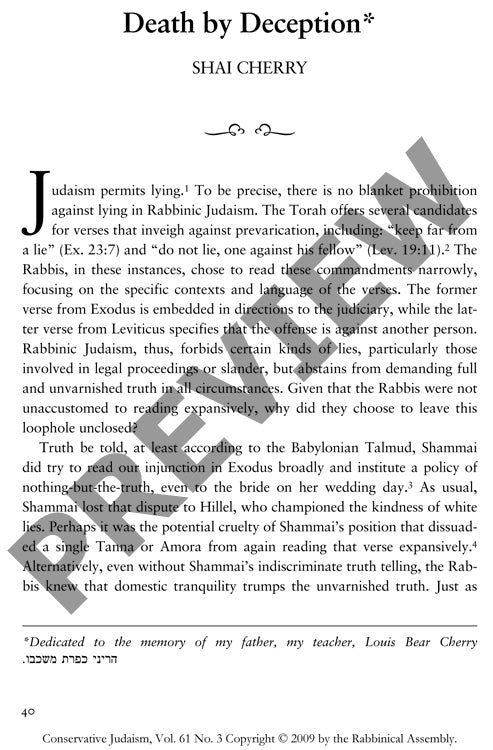Death by Deception
Couldn't load pickup availability
Death lurks in the shadow of self-deception - a danger the ancient Rabbis recognized through their concept of *g'neivat da'at* ("theft of the mind"). While Rabbinic Judaism permits certain forms of lying, it specifically prohibits creating false impressions about oneself, particularly regarding generosity and virtue. Through close textual analysis of halakhic midrash and talmudic *baraitot*, particularly the Mekhilta d'Rabbi Ishmael and Babylonian Talmud tractate Hullin 94a, three distinct categories emerge: hypocritical hospitality, false generosity, and exaggerated generosity. The Talmudic discussion traces a progression from concerns about fraud to life-threatening consequences of deception, culminating in a dramatic narrative of death resulting from self-deceptive hospitality. Medieval halakhic codes later narrowed the scope of *g'neivat da'at* to focus primarily on fraud, losing the broader Rabbinic understanding of psychological harm caused by self-deception. This original Rabbinic framework offers valuable insights for contemporary ethical issues, particularly in healthcare contexts where self-deception about one's physical condition can have fatal consequences, demonstrating the enduring relevance of these ancient warnings about maintaining false self-presentations.

More Information
-
Physical Description
-
Publication Information
Published 2009
ISBN
-
Publication Credits
Shai Cherry

